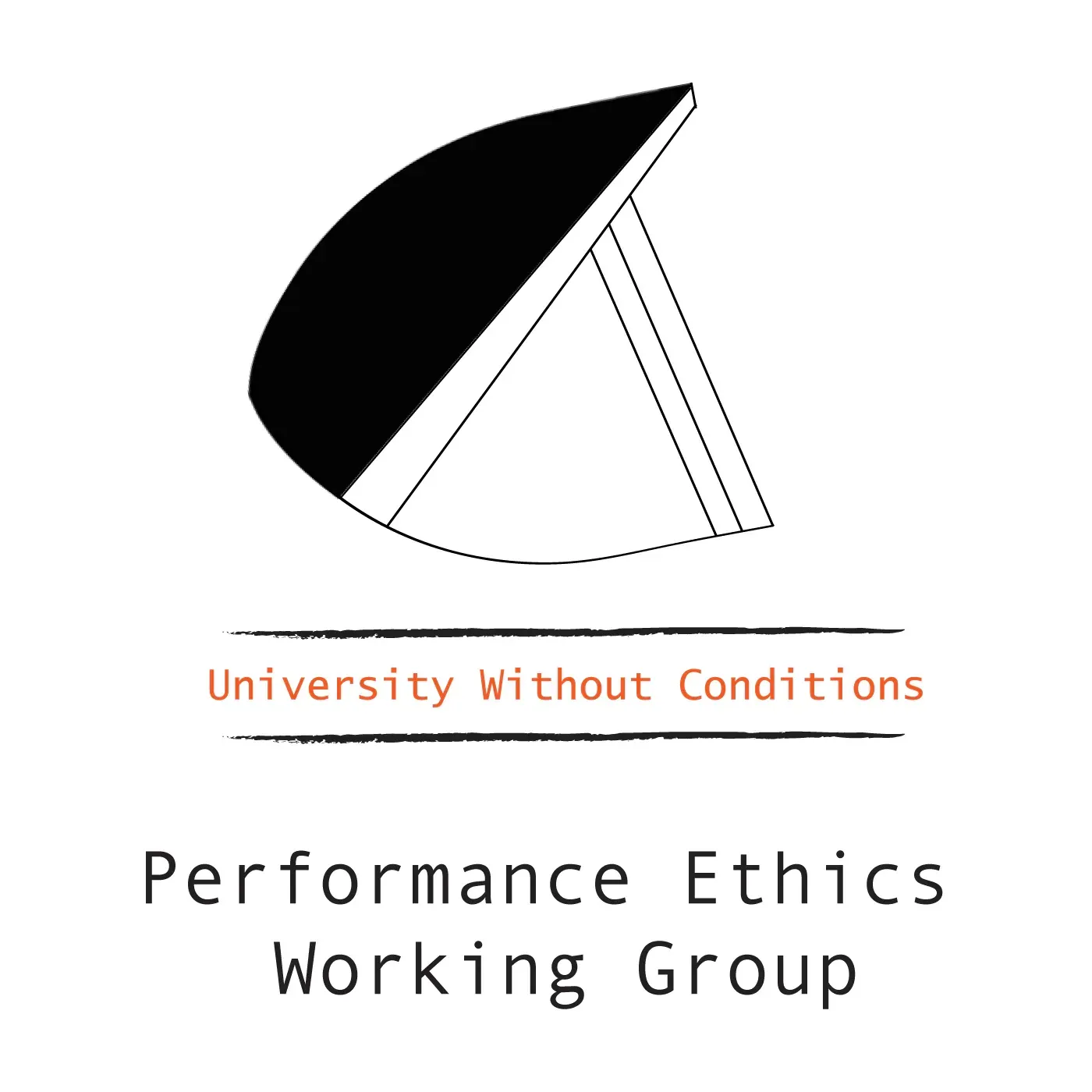Performance Ethics Working Group Podcasts
Written by

The Performance Ethics Working Group has been talking to people about ethics and performance for the last two years and now we've gone public with the results in a series of podcasts that look at what ethics has to do with performance. Investigating the legacy of transgressive performance art, the ethics of working with communities, traditional knowledges and audiences, not to mention the ethics of how performers are treated and paid the podcasts address some of the most complex issues confronting contemporary theatre, dance and visual arts practitioners today.
Drawing from their direct experiences of making, commissioning and viewing performance work, the participants discuss these complex questions using concrete examples, exposing their failures to secure the wellbeing of audiences, communities and performers alongside their successes.
There are nine podcasts in total bringing together the voices of 23 different creators, directors, curators, producers, and researchers including: Hadleigh Averill, Stephen Bain, Sally Barnett, Chris Braddock, Carol Brown, Craig Cooper, David Cross, Sean Curham, Alison East, Murray Edmond, Brent Harris, Mark Harvey, Mark Jackson, Alys Longley, Rose Martin, Sally J Morgan, Moana Nepia, Tru Paraha, Val Smith, Louise Tu’u, Kalisolaite ‘Uhila, Alexa Wilson, and Becca Wood.
The Performance Ethics Working Group is research cluster in the University Without Conditions, a free university and self-organising collective, without ties to Government or corporations. We exist not to produce ‘degrees for jobs’, but to enable a human being to improve themselves and the society in which they exist.
Performance Ethics Working Group: http://universitywithoutconditions.ac.nz/?page_id=201
Lead Researcher: Melissa Laing
email: melissa@melissalaing.com
Subscribe on itunes: https://itunes.apple.com/au/podcast/performance-ethics-working/id846935903
Episodes include:
Episode 1: What is ethics? (launched at the Festival of Uncertainty, 23 March 2014)
This first podcast introduces the idea of ethics as a daily practice and philosophical enquiry, exploring what we think the broad concept of ethics covers.
Episode 2: How we treat our audiences (published April 8, 2014)
The second podcast asks what responsibilities performers and producers have towards their audiences and talks about how these can conflict with the conceptual integrity of the work. We raise the question of how we determine what is offensive and who gets to decide that.
Episode 3: Reviewing performance art and ethics historically (published April 11, 2014)
During the interviews a number of historical examples from performance art were reviewed such as Marina Abramovic’s Rhythm 0 (1974), along John Duncan’s Blind Date (1980), along more contemporary works like Pania Lincoln and Hadleigh Averill’s Lunchtime Scrabble (1996), in which a shooting was too effectively simulated and Mike Parr’s Kingdom Come and/or Punch Holes In The Body Politic (2005) at Sydney Artspace. All of these works have challenged the performers and the audience to identify what their limits are, and when they will say stop.
Episode 4: The ethics of community engagement (published April 16, 2014)
The fourth episode explores the issues which research in and with communities brings up. Consent, collaboration, going undercover and the imbalances of power between the artist and community are all talked about while we investigate how community arts projects and relational aesthetics projects can be ethically approached
Episode 5: Ethics of working with traditional and indigenous knowledges (published April 24, 2014)
Recognising that the performing arts in Aotearoa New Zealand are structured and understood through dominantly western paradigms the fifth podcast examines the complexities of decolonising performance exploring the strategies we can employ to work intelligently work across cultures.
Episode 6: How we manage the ethics of money (Published April 30, 2014)
Episode six turns to the vexed question of money in the economically marginal field of performance. Discussing neoliberalism and cultures of exploitation, internships, alternative economies, unequal financial distribution and the decommodification of art the participants speak frankly of the ways they have approached the issue of equitable sharing funds and enabling work to be created.
Episode 7: Working relationships within the performance community (Published May 8, 2014)
The seventh podcast deals with ethical labour relationships between performers and institutions, festivals, curators, directors and choreographers. It addresses the issue of protecting of the performer from real physical risks as well as ensuring they have the psychological resilience necessary to make specific works before moving into the history of poor treatment and sometimes outright abuse of performers in the field of dance.
Episode 8: The University ethics process (Published May 22, 2014)
The eighth episode turns to the University, an institution which has long addressed the issue of applied ethics in research. However, these processes were initially developed for medical, sociological and anthropological research. Drawing from the participants experiences at Universities across New Zealand, Australia and the UK this podcast explores the positive benefits and negative effects of submitting work in development to the ethics committee.
Episode 9: Authorship in collaboration (Published May 28, 2014)
This bonus episode focuses on how we handle authorship in collaborative processes. It brings together the participants thoughts on the topic from debunking the myth of solo authorship and recognising the positivity of influence, to adequate programme credits and audience or community participation.